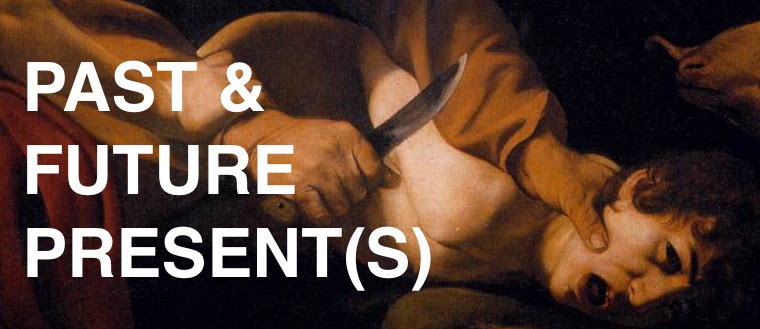Hear the white world
horribly weary from its immense efforts
its stiff joints crack under the hard stars
its blue steel rigidities pierce the mystic flesh
hear its deceptive victories tout its defeats
hear the grandiose alibis of its pitiful stumbling
Pity for our omniscient and naive conquerors!
— Aimé Césaire, Notebook of a Return to the Native Land
 |
Member's of the BBC's Empire Service staff, including T.S. Eliot and George Orwell, thinking of ways to bring Literature to the natives, 1942. Via @bintbattuta
|
By 1939,
the British Council had developed significant holdings in Cairo, Alexandria,
and Baghdad, and later expanded its operations in Jamaica, Nigeria, and throughout
Latin America, ensuring at the very least the continued circulation of English
literature and criticism abroad. The “Panel of Book Selectors” included the
literary critic Ivor Brown, who authored Contemporary
General Literature, and Daniel Jones, a linguist who had written extensively
on English phonetics and pronunciation. The council published short
introductions to a culturally dominant group of writers. To name a few, Stephen
Spender’s Poetry since 1939
summarized the New Signatures movement; Rex Warner revived an interest in E.M.
Forster; Edmund Blunden wrote a short book on John Keats; Herbert Read did one
on Byron; and John Lehmann provided one on Edith Sitwell. John Hayward wrote Prose Literature since 1939. The council
copublished works, such as Bernard Lewis’s British
Contributions to Arabic Studies, as a way of reinforcing and maintaining
power amid growing anticolonial pressure.
. . . By
the beginning of decolonization, the spaces that the council occupied were
extensive. It opened offices in Kenya in 1947, Malawi in 1950, Malaysia in
1948, Pakistan in 1948, Sri Lanka in 1950, and India in 1948. The council’s
library system was the most extensive in the world. At the end of 1956, there
were ninety-five libraries in fifty-seven countries, containing about 900,000
volumes and about 10,000 periodicals. The cultural presence of the council
assumed many forms: institutes, centers, libraries, pamphlets, novels, poetry,
manuals, magazines, auditoriums for conductors and symphonies, and spaces for
exhibitions. The
Sound Department of the council recorded a talk by E.M. Forester to accompany
and exhibition of a large model of an Elizabethan theater that was installed
adjacent to a display that provided a history of “Shakespeare in the British
Theatre”—all to ensure English culture maintained its value in what was then
East and West Pakistan; or at the very least, that England retained its
imperial identity in order to exert its authority in countries it no longer
directly controlled.
* * * *
With the
postwar expansion of new occasions for transmission and translation, as well as
the emergence of new forms such as the “radio magazine,” the relationship
between the writer and the public underwent further transformations that would decisively
expand and constrain cultural space. Working for the East Indian Division of
the BBC, Orwell produced a series of radio talks from 1941 to 1943. Entitled Voices, the radio program brought
together a group of Anglophone writers to read and discuss their poetry and
prose on the air. In London, the BBC’s Third
Programme, which began broadcasting in September 1946, performed a critical
function in establishing a dominant culture and community, thus securing the
reputation of Isaiah Berlin and T.S. Eliot as public figures and intellectuals.
Isaiah Berlin, for example, delivered numerous addresses on the BBC’s Third Programme. T.S. Eliot was
broadcast more than on more than eighty occasions on the Third Programme, for which he recorded his British Academy lecture
on Milton. Edward Sackville-West speculated that the Third Programme would become “the greatest civilizing force England
has known since the secularization of the theater.” What was significant about
these institutions is the way that they appeared to inadvertently interact and
overlap with the CCF [Congress for Cultural Freedom] and the various
organizations it had established in London, Paris, Berlin, New York, and Rome.
The first comptroller of the BBC’s Third
Programme, Herman Grisewood, served as the treasurer for the British
Society for Cultural Freedom, was the editor of the Twentieth Century, the successor to the Nineteenth Century and After, among one of the first publications
that the CCF sponsored before it launched Encounter
in 1953.
— Andrew N. Rubin, Archives of Auhtority: Empire, Culture, and the Cold War, Princeton: Princeton University Press, 2012, p. 48; 60-61.
We decided . . . to see just how 'numerous' the BBC's references to
Chavez's legitimate elections are, taking as a dataset all articles about
Venezuela between the start of November 1997 (when the BBC website began) and
the end of December 2011. This totalled 2,248 articles from the BBC website.
Our objective was to research how regularly Hugo Chavez is referred to as a
democratically elected president, and to compare this with how often words
depicting the president as autocratic or dictatorial have appeared (including
direct quotes from opposition politicians/media).
We found that, indeed, out of the full dataset, there were 146 articles
(165 mentions in total within them) which referred to Hugo Chavez as either
being elected or winning elections. The word 'legitimate' has appeared only in
direct quotes by Hugo Chavez himself.
Looking
further into the data gave interesting results on some of the more unfavourable
reporting of Venezuela since Hugo Chavez was elected. In the full dataset,
there were 160 articles (containing a total of 198 references) in which
Hugo Chavez is described as 'authoritarian', 'totalitarian', or a 'dictator', 'autocrat',
or 'tyrant'. These descriptions were overwhelmingly from the Venezuelan
opposition and the US government; however there were three instances in which
BBC reporters used such descriptions directly in their own words.



No comments:
Post a Comment